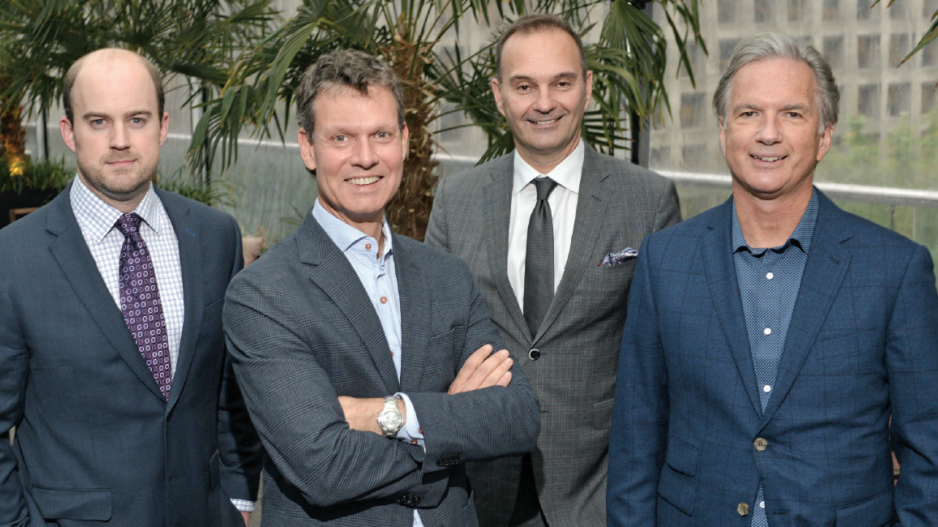There was a diverse array of questions and concerns raised with the panellists at Business in Vancouver’s latest Business Excellence Series event – and for good reason.
Next spring Canada takes the plunge as the federal government is slated to introduce legislation making recreational marijuana legal across the country. While some countries have dabbled with decriminalization and many U.S. states have also legalized pot for personal consumption, Canada’s journey into the world of legal weed is unprecedented.
Titled Legalizing Cannabis, held at the Shangri-La Hotel on October 19, the event was sold out and standing room only as attendees sought insights from experts on the front lines of the emerging marijuana legal landscape.
Panellist Cam Battley, executive vice-president of licensed medical cannabis producer Aurora Cannabis Inc., which is based in Alberta but has operations in Vancouver, said it’s exciting to think of how important this is not only for us as a nation, but for the planet as a whole.
“We’re doing something historical,” Battley said. “And it’s something that’s not just being watched across the country but around the world. And it’s a good moment for Canada. We have the world’s best-developed, most successful medical cannabis system to begin with.”
Battley noted Canada’s medical marijuana industry was created under the Conservative government, and the fact that it was market-based meant that competition bred innovation. The result is 67 licensed producers from coast to coast, all highly regulated and scientifically driven producers who have helped turn Canada into an international leader in the field.
Glenn Fraser, MNP’s vice-president and national leader, food and beverage processing, said one of the most important benefits of legal marijuana is a real chance to stamp out the illegal sale of the drug. However, he did note that pot is now going to have to come from somewhere else, in abundance, and fast.
“The main objective of this legislation is to eliminate the black market, and make it safe for consumers,” Fraser said. “And the challenge that we have heading into July 2018 is a massive shortage of supply. So I think making sure that we get the policy right from a provincial perspective and the distribution right is going to be critical. If we screw that up, it will create problems in Canada, and other countries are going to look at us and say, ‘Maybe that wasn’t such a great idea.’ So it’s really important that we get it right.”
The new provincial government is asking for feedback on how B.C. should sell, regulate and distribute pot. Many industry insiders are hoping for a more free-market approach, Battley said, as opposed to Ontario’s unveiled framework in which pot will be sold solely through government stores. He said this would allow for the private sector to cultivate a healthy environment of competition while keeping prices low and offering the best product.
Drew Demerse, a partner at Roper Greyell who advises employers on workplace legal matters such as labour, disabilities and human rights, said it’s crucial that employees be educated about legal marijuana before next spring. He said the main benefit of having pot sold on the books is that everyone will know what they’re getting and consuming – however this does not exempt people from the responsibility for making sound judgments.
“When you go into the corner cold beer and wine store to get some of B.C.’s great craft brew, you know whether you’re buying some saison [beer] that’s 3%, or if it’s 10%,” he said. “And so if we have that with marijuana, that allows people to make responsible choices, or at least we hope they will.” •




